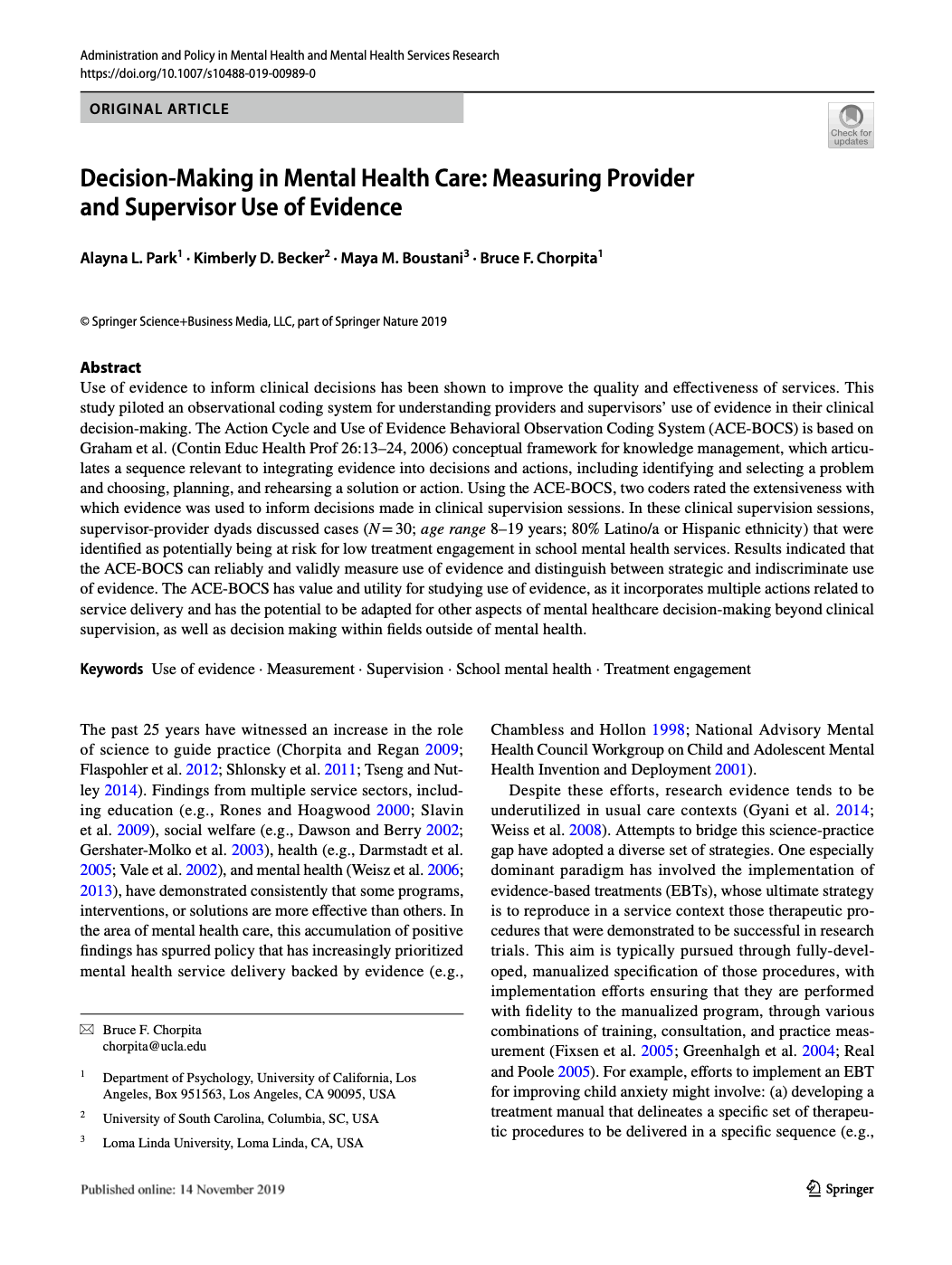Decision-making in mental health care: Measuring provider and supervisor use of evidence

Use of evidence to inform clinical decisions has been shown to improve the quality and effectiveness of services. This study piloted an observational coding system for understanding providers and supervisors' use of evidence in their clinical decision-making. The Action Cycle and Use of Evidence Behavioral Observation Coding System (ACE-BOCS) is based on Graham et al. (Contin Educ Health Prof 26:13-24, 2006) conceptual framework for knowledge management, which articulates a sequence relevant to integrating evidence into decisions and actions, including identifying and selecting a problem and choosing, planning, and rehearsing a solution or action. Using the ACE-BOCS, two coders rated the extensiveness with which evidence was used to inform decisions made in clinical supervision sessions. In these clinical supervision sessions, supervisor-provider dyads discussed cases (N = 30; age range 8-19 years; 80% Latino/a or Hispanic ethnicity) that were identified as potentially being at risk for low treatment engagement in school mental health services. Results indicated that the ACE-BOCS can reliably and validly measure use of evidence and distinguish between strategic and indiscriminate use of evidence. The ACE-BOCS has value and utility for studying use of evidence, as it incorporates multiple actions related to service delivery and has the potential to be adapted for other aspects of mental healthcare decision-making beyond clinical supervision, as well as decision making within fields outside of mental health.
Full text available here: Park et al (2019) Decision-making in mental health care Measuring provider and supervisor use of evidence



